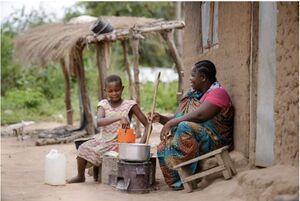Humanitarian Energy Situation in Uganda
Humanitarian Situation Background
Uganda is one of the largest refugee hosting countries worldwide, with approximately 1.4 million refugees, mainly from South Sudan, the Democratic Republic of Congo (DRC), Rwanda, Somalia, and Burundi. Despite the substantial number of refugees, Uganda provides refugees with land, freedom of movement, equal access to social services and the right to work and set up businesses. Uganda is applying an integrated approach, whereby refugees are included into the national planning framework and national statistics. By doing so, Uganda closely follows the paradigm of the Global Compact on Refugees (GCR), the adoption of the New York Declaration and its Comprehensive Refugee Response Framework (CRRF) and especially focuses on:- Easing the pressures on host countries
- Enhancing refugee self-reliance
The influx of refugees has placed overwhelming demands on already strained capacities and resources of the government, the host communities, and the environment. Lack of access to sustainable energy is one of the great challenges that Uganda faces these days, in both host as well as refugee communities. Households, small and medium-sized enterprises (SMEs) and social institutions like schools and health centres often have very limited access to energy and are not able to cover essential needs. Moreover, electricity infrastructure in refugee and host communities is minimal and usually generated through expensive and environmentally harmful fossil fuels. Lack of sustainable energy results in heavy pressure on and degradation of natural resources that can result in social tension.




















